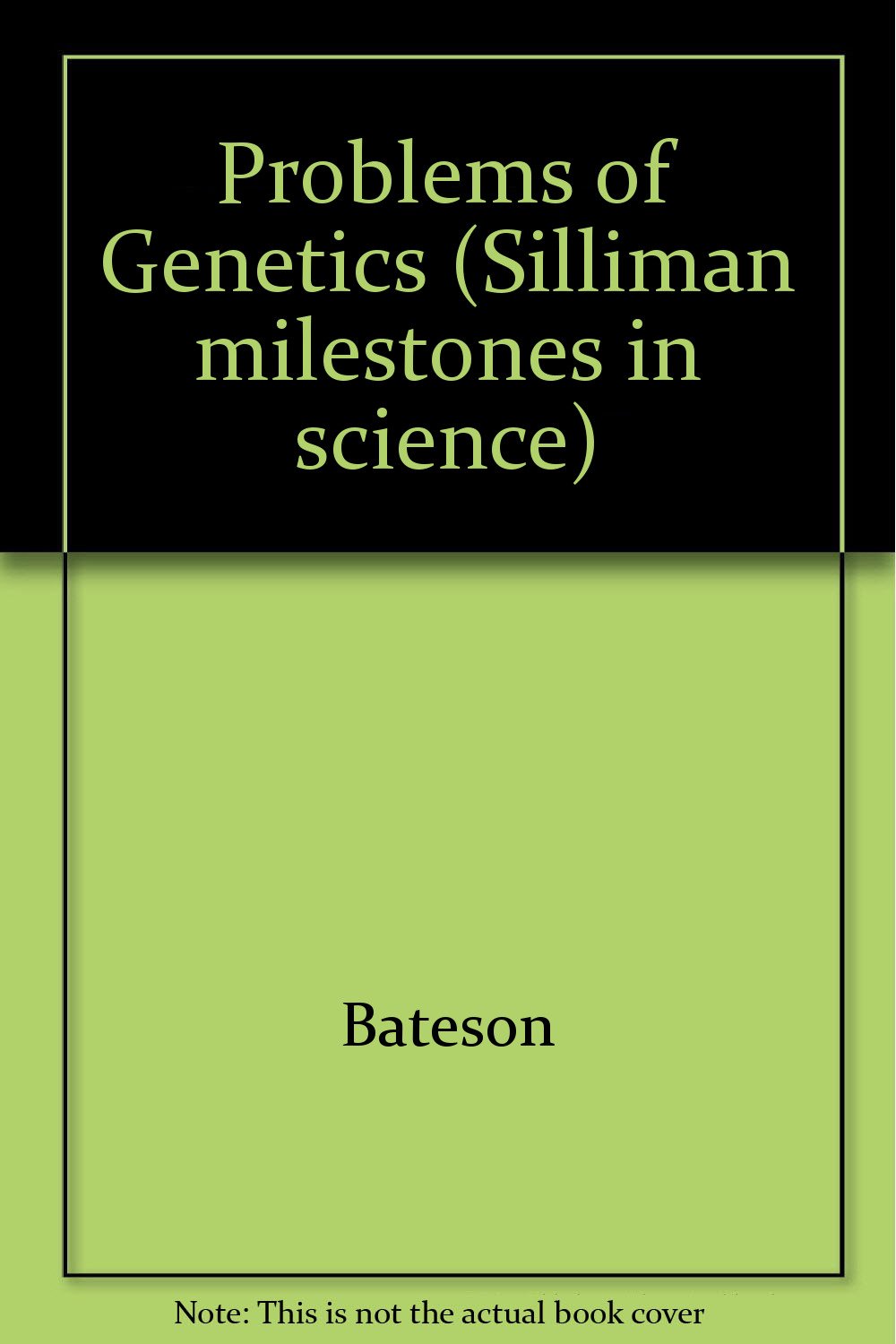

 |

|

The average rating for Problems of genetics based on 2 reviews is 3.5 stars.
Review # 1 was written on 2011-05-13 00:00:00 Leonard Hoffman Leonard HoffmanSources of the Divine In the two decades or so since the publication of Stephen Jay Gould's Full House , it has attracted attention and criticism from many corners - evolutionary scientists, religious spokespersons, even from some of his allies in promoting humanistic rationality. Gould's central point is that Darwinian evolution is not a progressive process, specifically that the species Homo sapiens is not the top-most branch of an evolutionary tree. Rather, for Gould, the development of species is more like an expanding spider's web (my metaphor not Gould's), stretching out in multiple directions with numerous interconnections which are mutually dependent. This deconstruction of evolutionary hierarchy - in which 'later' is presumed 'better' and 'complex' is superior to 'simple' - is a brilliant insight. So brilliant that I would like to suggest it goes beyond biology. It is an insight which actually accomplishes what religious fundamentalists mistakenly feared about Darwin. Gould provides what is essentially a natural theology, by which I mean he articulates the source of the apparently universal human instinct for contemplating the miracle of their existence. Just how profound a miracle is revealed by Gould's analysis of the origin and maintenance of life on Earth, both of which depend upon an invisible, effectively omnipotent, beneficent, yet impassive entity: the domain of bacteria. Bacteria are neither plant nor animal; yet they are necessary for all plant and animal life. Some bacteria have the capacity for photosynthesis; others 'eat' various organic and inorganic material in chemical reactions. They stabilise global ecology, create our food, digest our dinners (as well as our oil spills), manufacture our vitamins, consume our waste, and sometimes kill us in large numbers. Some have a more complex genetic structure than human beings. They can even extract DNA from their environment. Bacteria are both top and bottom of the food chain. If all other life disappeared, they could live on each other. We need them but they do not need us. Bacteria arrived on the planet long before we did; and they will probably outlast us because their mutational processes allow them to adapt quickly to almost any environment. There are consequently a lot more of them than us no matter how you measure it - sheer numbers, gross mass, or prevalence. They are everywhere, on or in everything. Without bacteria, the human species would simply not exist. Collectively bacteria are what we typically mean by the word God - the source and destination of our existence which protects us, and lovingly returns us to the dust whence we came. We are not caretakers of the planet but its in-patients. Bacteria are the ones in charge. So the biblical story of creation is certainly deficient, as well as species-centric. Even before the command 'Fiat Lux' much less the division of the waters and the separation of land, 'Fiat Prokaryote' (necessarily mixing Latin and Greek), 'Let there be bacteria,' should have sounded. But, of course, bacteria are mute... as far as we know. Then again, so is God - yet another data point suggesting bacterial divinity. Perhaps this was what Spinoza was trying to articulate in his pantheistic philosophy - God everywhere, in everything, the universal divine spark. Even the intuition of the Christian Trinity concisely describes the situation of bacterial dominance: God within us, God among us, God entirely separate from us. According to Gould "humans can occupy no preferred status as a pinnacle or culmination. Life has always been dominated by its bacterial mode." It is bacteria which created us and it is bacteria which sustain us. It is bacteria, if anything, that will redeem and save us from the destruction we have wrought on the planet and its other species. Long live the bacteria! Thanks to Gould, we know to whom the religions of the world are really dedicated - or should be. Bacteria are at the centre of the web which is nowhere, and its circumference which is everywhere. The divine bacterial mind is as inscrutable as any mythical figure. It deserves our devoted respect and, who knows, perhaps even our prayers. I'm thinking of a revolutionary mantra: 'THE FIRST SHALL BE LAST' Postscript 05082020: |
Review # 2 was written on 2015-12-12 00:00:00 Hartmann Paul Hartmann PaulDawkins once criticised Gould for being too good a writer. Now, there's a criticism you don't read every day. This is a stunning book. In it Gould discusses Plato's forms, his fight with cancer and his explanation of evolution as not being about increasing complexity. Prepare to have your fundamental assumptions about evolution shaken to the core. I love this man's writing - over the years he taught me more about the world than just about anyone else I've ever read. In fact, if there was anyone I would quite like to have been... |
CAN'T FIND WHAT YOU'RE LOOKING FOR? CLICK HERE!!!